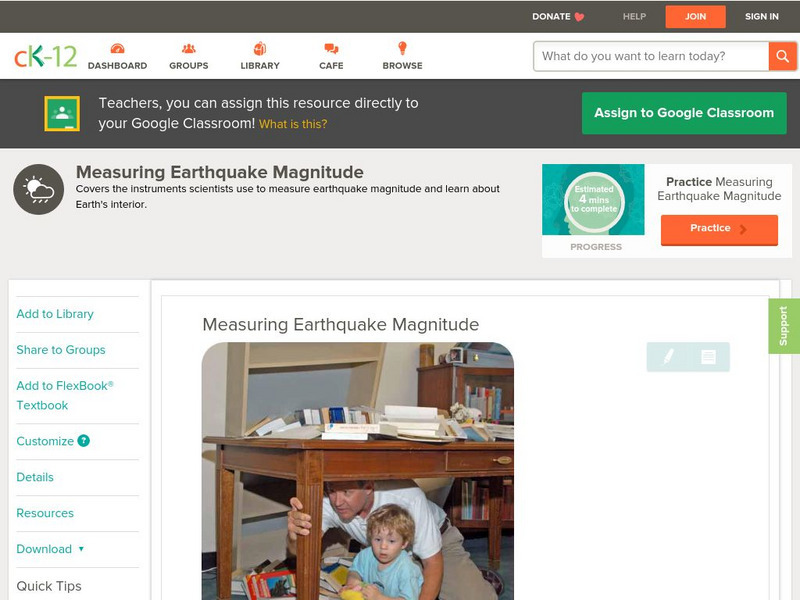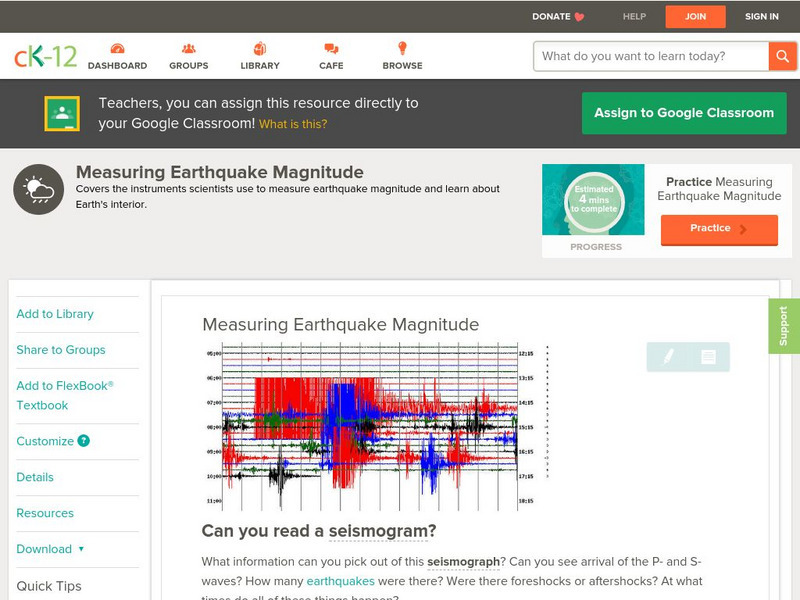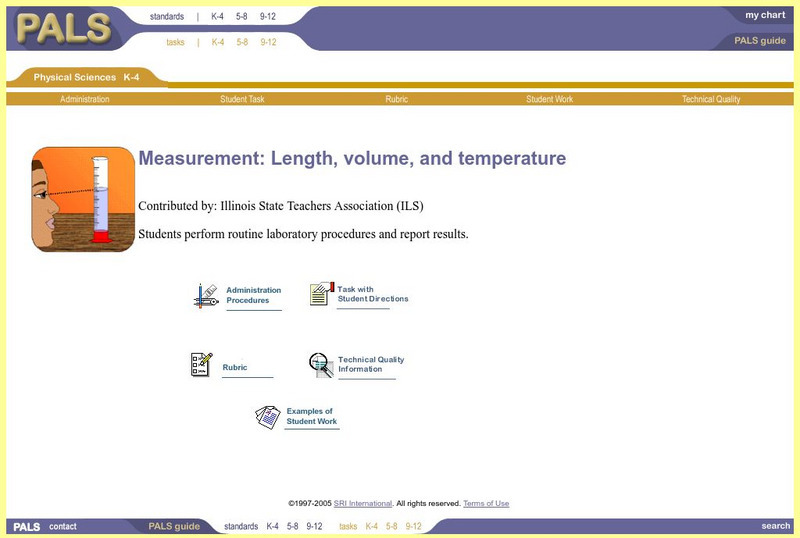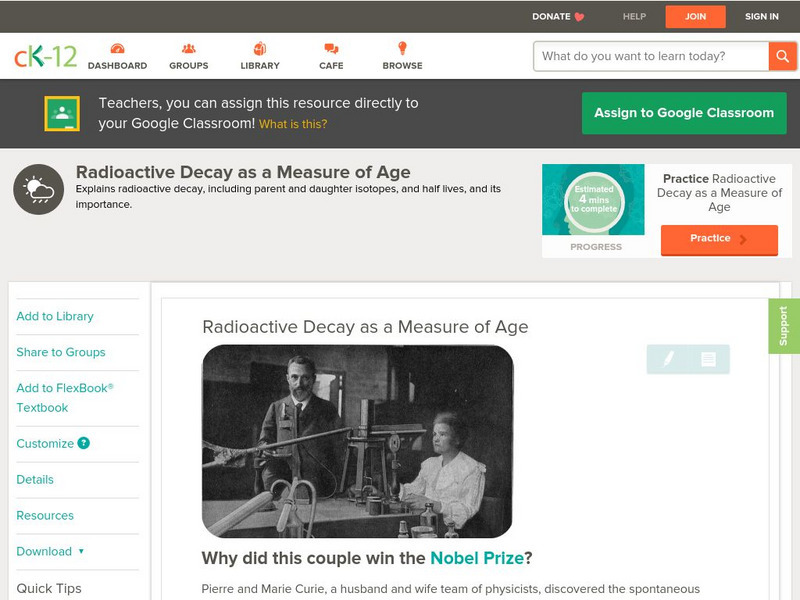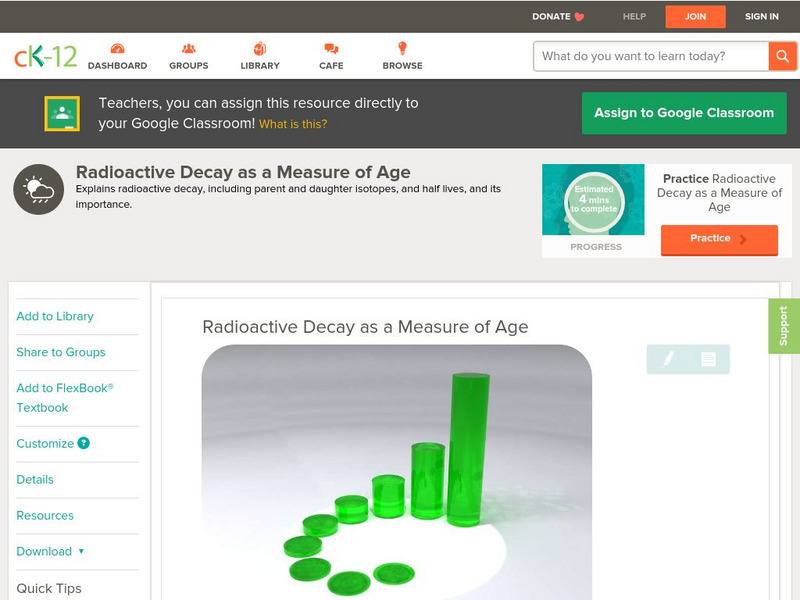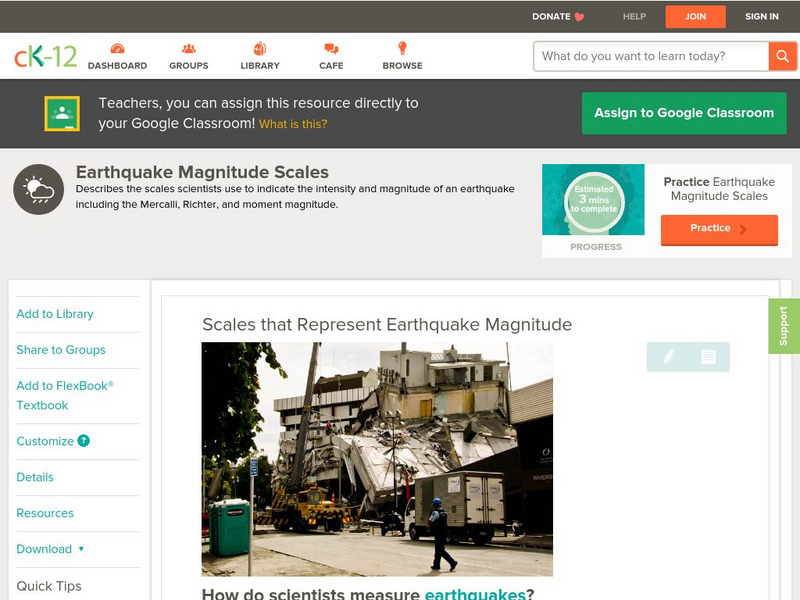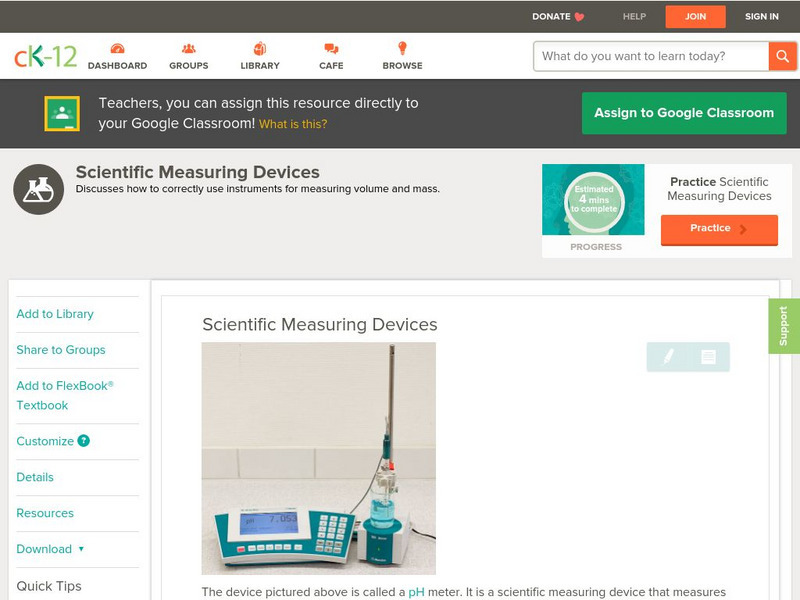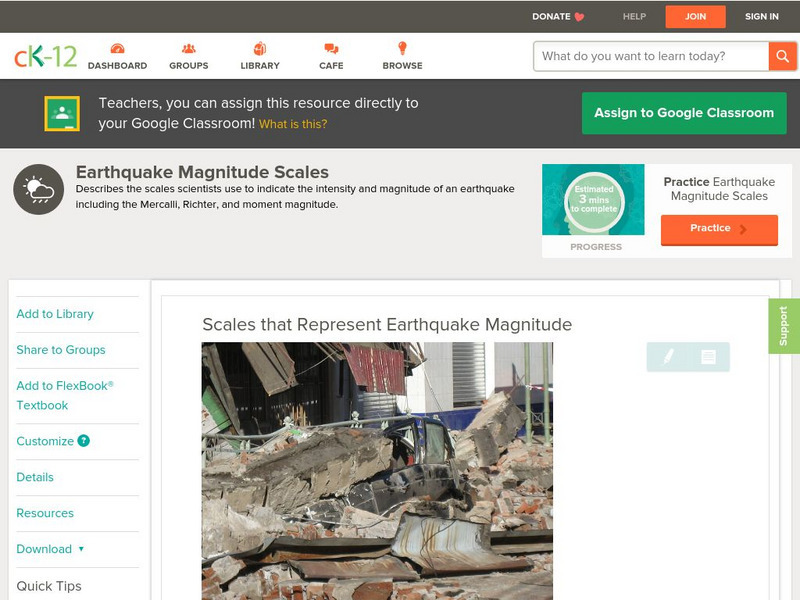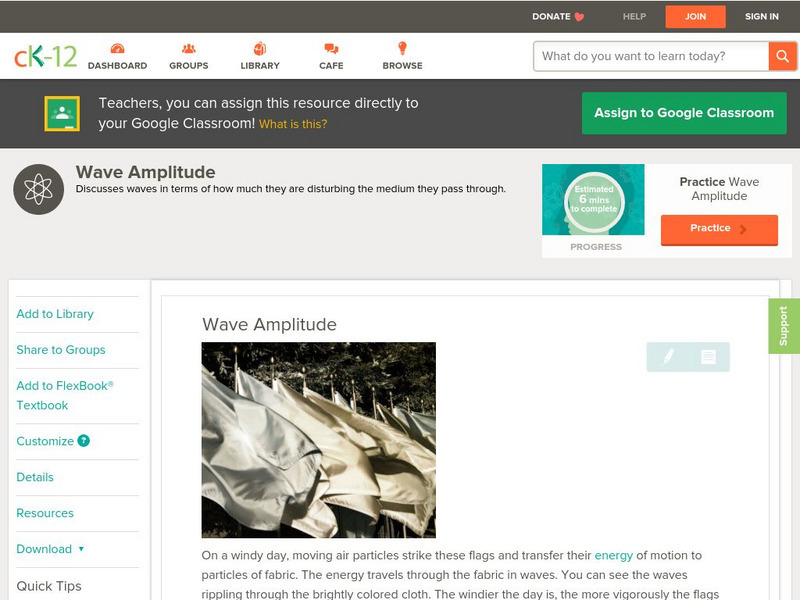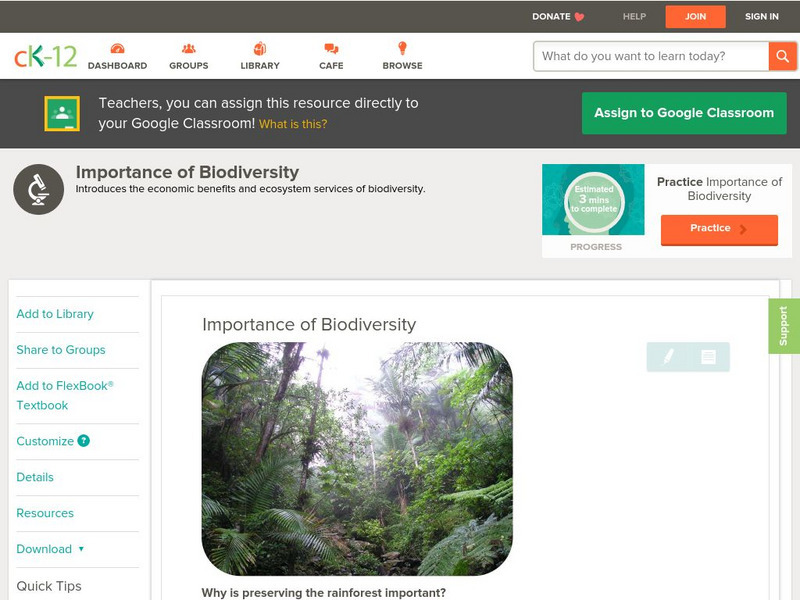Hi, what do you want to do?
Chicago Children's Museum
Simple Machines: Force and Motion
Get things moving with this elementary science unit on simple machines. Through a series of nine lessons including teacher demonstrations, hands-on activities, and science experiments, young scientists learn about forces, motion,...
Virginia Racing Commission
Project Hoofbeat: Incorporating the Horse in the Classroom:
It's all about horses in this cross-curricular packet that includes everything equine from United States horse history, breeds, grooming tools, and plenty of new vocabulary terms. Split into 11 lessons, learners complete crossword...
Core Knowledge Foundation
Weather or Not, Seasons Change
Embark on a year long investigation of the seasons with this 10-lesson earth science unit. After being introduced to different types of weather and the tools used to measure it, young scientists perform fun hands-on activities that...
Indiana Department of Education
Indiana K-12 Educators’ Resource Toolkit
Imagine a tool that magically engages readers in the classroom. A handbook for Indiana educators doesn't guarantee success, but it does offer a variety of strategies for teachers to try. The handbook opens with research-based theory...
Intel
Composting: Why Bother?
The first STEM lesson in a group of 10 explores composting. After discussing how to make a better tomorrow, classes are challenged to track garbage in their communities, visit a local waste management facility, and conduct a survey...
Intel
Energy Innovations
Collaborative groups examine the importance of energy resources on quality of life by researching different energy sources and alternative energy sources through data analysis. They make a comparison of different countries and cultures,...
University of California
The Cold War (America)
The Cold War—with its roots in World War II—impacts the world today. Using an extensive curriculum, scholars consider its impact through primary sources, including speeches and propaganda, as well as other skills-enhancing activities. An...
Other
Science4 Us: Science Tools
The Tools module introduces students to the tools scientists use for both qualitative and quantitative observations. Students learn to use tools such as their senses, rulers, and balance scales through hands-on activities.
CK-12 Foundation
Ck 12: Earth Science: Measuring Earthquake Magnitude
[Free Registration/Login may be required to access all resource tools.] Covers the instruments scientists use to measure earthquake magnitude.
CK-12 Foundation
Ck 12: Earth Science: Measuring Earthquake Magnitude
[Free Registration/Login may be required to access all resource tools.] Covers the instruments scientists use to measure earthquake magnitude.
SRI International
Performance Assessment Links in Science: Measurement: Length,volume,temperature
This performance task tests students' ability to measure length, volume and temperature accurately in a lab setting.
CK-12 Foundation
Ck 12: Physical Science: Calculating Derived Quantities
[Free Registration/Login may be required to access all resource tools.] Definition of derived quantity and calculation and units of derived quantities (area, volume, density).
CK-12 Foundation
Ck 12: Physical Science: Calculating Derived Quantities
[Free Registration/Login may be required to access all resource tools.] Definition of derived quantity and calculation and units of derived quantities (area, volume, density).
CK-12 Foundation
Ck 12: Earth Science: Radioactive Decay as a Measure of Age
[Free Registration/Login may be required to access all resource tools.] An overview of radioactive decay.
CK-12 Foundation
Ck 12: Earth Science: Radioactive Decay as a Measure of Age
[Free Registration/Login may be required to access all resource tools.] An overview of radioactive decay.
CK-12 Foundation
Ck 12: Physical Science: Scientific Measuring Devices
[Free Registration/Login may be required to access all resource tools.] How to use scientific measuring devices (metric ruler, triple beam balance, graduated cylinder).
CK-12 Foundation
Ck 12: Earth Science: Scales That Represent Earthquake Magnitude
[Free Registration/Login may be required to access all resource tools.] Covers the scales scientists use to measure the size and intensity of earthquakes.
CK-12 Foundation
Ck 12: Physical Science: Scientific Measuring Devices
[Free Registration/Login may be required to access all resource tools.] How to use scientific measuring devices (metric ruler, triple beam balance, graduated cylinder).
CK-12 Foundation
Ck 12: Earth Science: Collecting Weather Data
[Free Registration/Login may be required to access all resource tools.] Describes the various instruments that scientists use to measure weather conditions, including advanced tools like satellites and radar.
CK-12 Foundation
Ck 12: Earth Science: Scales That Represent Earthquake Magnitude
[Free Registration/Login may be required to access all resource tools.] Covers the scales scientists use to measure the size and intensity of earthquakes.
Sophia Learning
Sophia: Graphing in Science
Students will learn how to use appropriate and different procedures, tools, measurements, graphs and mathematical analyses to describe and investigate natural and designed systems in a physical science context.
CK-12 Foundation
Ck 12: Physical Science: Distance
[Free Registration/Login may be required to access all resource tools.] Explains what distance is, its SI unit, and how to use maps to measure distance.
CK-12 Foundation
Ck 12: Physical Science: Wave Amplitude
[Free Registration/Login may be required to access all resource tools.] What wave amplitude is and how to measure it, and what determines the amplitude of a wave.
CK-12 Foundation
Ck 12: Life Science: Importance of Biodiversity
[Free Registration/Login may be required to access all resource tools.] Biodiversity is a measurement of the amount of variation of the species in a given area. More specifically, biodiversity can be defined as the variety of life and...













